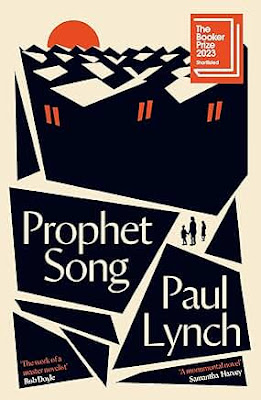Even though, or maybe because, I haven't been feeling particularly well for the last few days, I immersed myself into reading, movies, and music last week more than I have in a while. And the college baseball I was able to enjoy via ESPN+ was the absolute icing on the cake. So not a bad week, considering. I finished up two novels, The Man Who Smiled and Mercury, along with a non-fiction title, An American Dreamer. Of the three, Mercury is by far the one I enjoyed most, but I should have more to say about each of them in the next few days.
So where does that leave me? Well, I finally started reading my library copy of Absolution, and what can I say...it's Alice McDermott, after all, a favorite of mine who seems to be knocking it out of the park again with this one. The set-up, at near 100 pages in, has been brilliant. I've also read the second of fourteen short stories in Joan Leegant's Displaced Persons collection, almost half of Henning Mankell's first Kurt Wallander mystery, Faceless Killers, and have been pleasantly surprised to find that Mark Twain's Huckleberry Finn can still make me laugh out loud despite its rather grim plot. Camus's The Plague, however, hasn't been touched in almost three weeks now.
Absolution is narrated by a rather naive young American newlywed who moved to Vietnam with her engineer husband (who had been seconded to the U.S. Navy) in the early sixties not too long before war started again in that unfortunate country. The narration is especially intriguing because the narrator is now about 80 years old and is addressing her memories of those days directly to the adult daughter of the woman who was her best friend in Vietnam in 1963. I have a long way to go, but this one promises to get a little messy before it's all done.I'm still a little confused as to how the Kurt Wallander books have been published in this country. It seems like there are a lot of Wallander books out there, maybe even more than one series, including a series in which Wallander is a secondary character to his own daughter. Adding to my confusion, I do know that the books were not published here in the order in which they were first published in Sweden. Anyway, this is supposed to be Kurt Wallander No. 1 even though Kurt is already a rather gloomy old fart right from the first page. This is not the actual edition of Twain's The Adventures of Huckleberry Finn I'm reading, but I've always been partial to this cover, and since the LOA edition doesn't have a cover image, I decided on this one. This must be the fourth or fifth time I've read Finn but it's been a really long time since the last time. As I said up above, it's a pretty brutal story, but it is also so funny that I end up laughing a lot while reading it...especially in that bit where Huck dresses up as a little girl and pretends to be in need of help. The method used by a village woman to prove Huck is a boy in disguise vividly reminds me of a story I heard my grandfather telling when I was about seven or eight years old. (The story wasn't P.C. even in those days - probably why it stuck in my memory so vividly.)
If you read yesterday's post, you know that I'm on the verge of reassessing my reading plan - at least for a while - by purposely beginning to raid my own shelves for reading material while I still can. The way I figure it, I've let the books become more ornaments and reference material now than anything else, and that's not why I bought them, nor is it why I still treasure them. I dread having to downsize at some point, but I know it's probably inevitable for most of us. I don't mean to sound gloomy, because I'm not really feeling that way; it's more that I've always been a planner, and this feels like the time to come up with a new plan.
Here are the ones I'll be considering next. These are a mix of shelf books, library copies, and ARCs on hand:
 |
| Shelf Copy from 1971 |
 |
| Library Copy |
 |
| ARC On-Hand |
 |
| ARC On-Hand |
 |
| Shelf Copy from 1982 |
I hope you all have great weeks in every sense of the word, and I'll look forward to seeing you on the blogs...



































